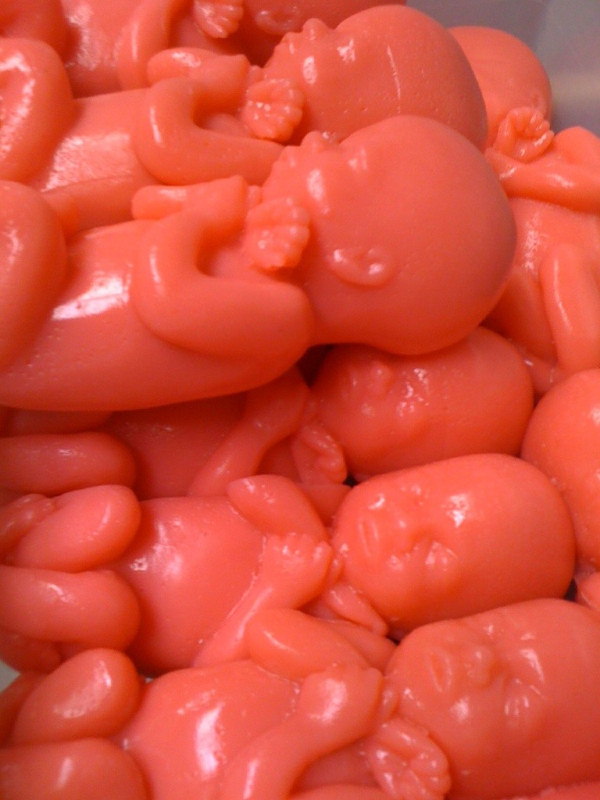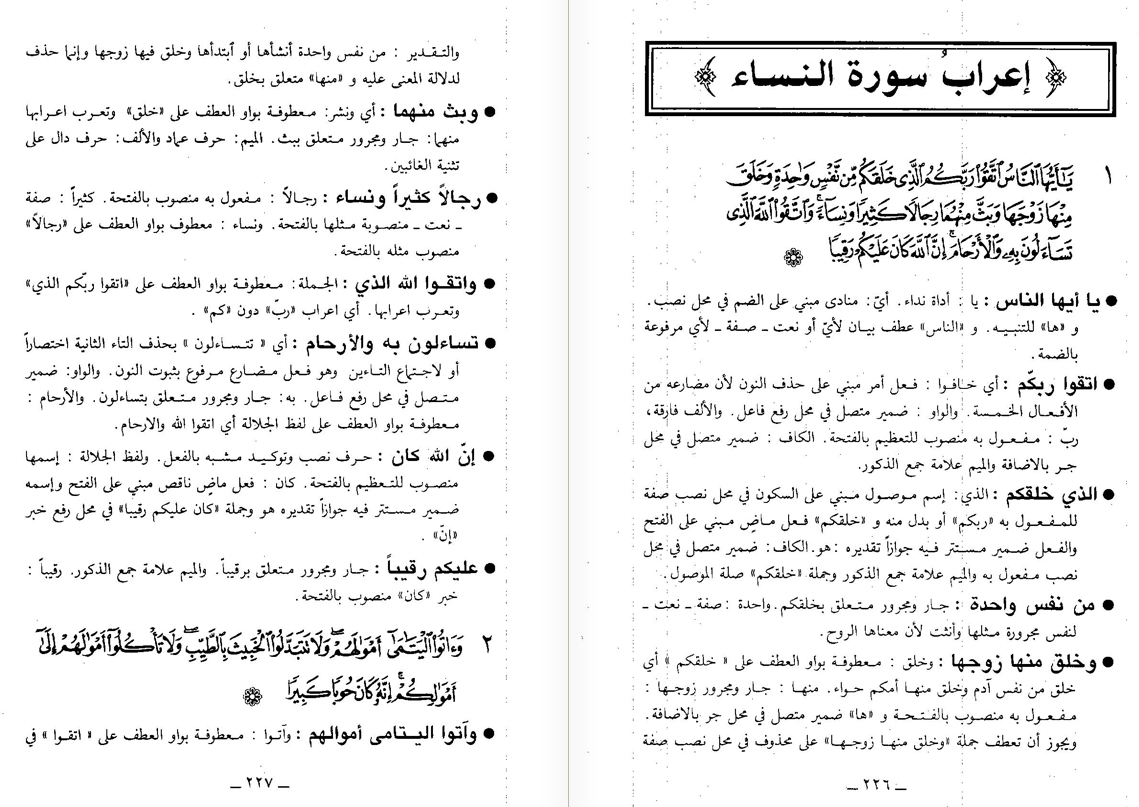Tafsir 4:1

Discussion Join
See Also:
http://www.untiredwithloving.org/khitab.html
http://www.untiredwithloving.org/kafirun.html
For grammar word by word:
http://corpus.quran.com/wordmorphology.jsp?location=%284:1:1%29
For Ya-Ayy-u-Ha see:
http://www.untiredwithloving.org/kafirun.html#three_calls
There is no Qul (Say)
in 4:1. as opposed to Surah Al-Kafirun
since Qul is exclusive for the Prophet, therefore we can safely
conclude that Ya-Ayy-u-Ha is a call for all people at all times. It
is a call from an unseen caller, invisible caller!
So 4:1. is not Muhammad calling out.
But there is also a particularized call in the same verse:
Tafsir Kabir
Razi
The Khitab (Address)
of Ya-Ayy-u-Ha is for all mankind, not just for the people of
Makkah. As opposed to:
4:1. O mankind! reverence your Lord who created you... - (O
Arab of Muhammad's time ) Fear Allah, through whom you (pl)
demand/invoke by Him/IT/Hu and the wombs
Calling and invoking Allah by habitual juxtaposing the word Wombs is
particularized to the Arab (of Muhammad's time).
تفسير مفاتيح الغيب ، التفسير الكبير/ الرازي (ت
606 هـ)
المسألة الأولى: روى الواحدي عن ابن عباس في قوله: { يا
أَيُّهَا ٱلنَّاسُ } أن هذا الخطاب لأهل مكة، وأما الأصوليون
من المفسرين فقد اتفقوا على أن الخطاب عام لجميع المكلفين،
وهذا هو الأصح لوجوه: أحدها: أن لفظ الناس جمع دخله الألف واللام
فيفيد الاستغراق. وثانيها: أنه تعالى علل الأمر بالاتقاء بكونه
تعالى خالقاً لهم من نفس واحدة، وهذه العلة عامة في حق جميع
المكلفين بأنهم من آدم عليه السلام خلقوا بأسرهم، وإذا كانت العلة
عامة كان الحكم عاما. وثالثها: أن التكليف بالتقوى غير مختص بأهل
مكة، بل هو عام في حق جميع العالمين، وإذا كان لفظ الناس عاما في
الكل، وكان الأمر بالتقوى عاما في الكل، وكانت علة هذا التكليف،
وهي كونهم خلقوا من النفس الواحدة عامة في حق الكل، كان القول
بالتخصيص في غاية البعد. وحجة ابن عباس أن قوله: { وَٱتَّقُواْ
ٱللَّهَ ٱلَّذِى تَسَاءلُونَ بِهِ وَٱلأرْحَامَ } مختص بالعرب
لأن المناشدة بالله وبالرحم عادة مختصة بهم.
Tafsir Baidhavi
Allah has informed him (the Prophet ?) to juxtapose the word Wombs
next to His/ITs Divine Name, and for that matter from the Prophet:
Al-Raham (Womb) is dangling from the 'Arsh (Divine
Throne) saying: He who keeps ties with me has relation with
Allah and who severs me Allah shall disown him.
تفسير انوار التنزيل واسرار التأويل/ البيضاوي
(ت 685 هـ)
وقد نبه سبحانه وتعالى إذ قرن الأرحام باسمه الكريم على
أن صلتها بمكان منه. وعنه عليه الصلاة والسلام " الرحم معلقة
بالعرش تقول ألا من وصلني وصله الله ومن قطعني قطعه الله "
{ إِنَّ ٱللَّهَ كَانَ عَلَيْكُمْ رَقِيباً } حافظاً مطلعاً.
Tafsir Shaukani
Some people from Kufa read Ta-Ta-Sa'al-un with two Ta, and the
people of Madina read Ta-Sa'al-un by merging one Ta to Siin.
تفسير فتح القدير/ الشوكاني (ت 1250 هـ)
قوله: { وَٱتَّقُواْ ٱللَّهَ ٱلَّذِى تَسَاءلُونَ بِهِ
وَٱلأرْحَامَ } قرأ أهل الكوفة بحذف التاء الثانية، وأصله
تتساءلون تخفيفاً لاجتماع المثلين. وقرأ أهل المدينة، وابن
كثير، وأبو عمرو، وابن عامر بإدغام التاء في السين؛
والمعنى: يسأل بعضكم بعضاً بالله والرحم، فإنهم كانوا
يقرنون بينهما في السؤال، والمناشدة، فيقولون: أسألك بالله والرحم،
وأنشدك الله والرحم، وقرأ النخعي، وقتادة، والأعمش، وحمزة: {
وَٱلأرْحَامِ } بالجر. وقرأ الباقون بالنصب.
و { الأرحام } اسم لجميع الأقارب من غير فرق بين المحرم
وغيره، لا خلاف في هذا بين أهل الشرع، ولا بين أهل اللغة
وقد خصص
أبو حنيفة، وبعض الزيدية الرحم بالمحرم،.
'I-Ta-Taq-Waw-Alif comprised of:
1. Hamza: Amr Imperative
2. Ta (first): 2nd person
3. Ta (second): the first letter of the verb i.e. Fa of
Fa-'A-La
4. Wa: Fa'il grammatical doer
5. Alif: Separator of the verb from what comes after not to
read as one word
NOTE: Ta is Mushad-dada i.e. with Tashdid to shorten the
double-T pronunciation
This verb's formation:
Fa'il Amr Mabni 'Ala Hazf Nun (Tantawi, Al-Azhar, ISBN 01D120251)
Hazf: Elision, omission of Nun, since the verb was supposed
to be ta-fa-'a-lam-waw-nun but the last nun was removed
Rabb-A: Rabb (Administrator, Guardian
who nurtures), Maf-'ul Bi-Hi (object of verbal clause), Mansub (in
state of Nasb i.e. A (Fat-ha) sounds the last letter). Fat-ha
placed there as a sign of aggrandizement (Ta'zim)
Kaf: Dhamir Muttasil
(prefixed-connected pronoun) , in state of Jarr therefore it is an
Idhafa (Annexation) to Rabb
Mim: 'Alama (Sign or flagged) to
indicate male plural
Al-La-Dhi: Sifat or Niat
Sifat for Maf'ul Bi-Hi namely Rabb-a Ku-m (your Lord)
Or Badal for Rabb-a Ku-m (your Lord)
Al-La-Dhi is Mabni (invariant in I'rab) upon Sukun (soundlessness of
ending Yi), but in state of Nasb.
Mabni:This terminology means Al-La-Dhi ends with Sukun for
I'rab no matter what other operators ('Awamil) are in the sentence
or you might say invariant I'rab.
Badal: a noun apposition to another:
http://en.wikipedia.org/wiki/Apposition
(roughly in English grammar)
The second 'Ittaqu has the implicit call of the beginning
Ya-Ayy-u-Ha but particularized for the Arab of the Muhammad's time,
peace be upon. As mentioned above the usage of womb juxtaposed to
Allah's name was particular habitual invocation of the Arab of that
time (only).
Grammatical Research for Inna:
http://www.untiredwithloving.org/ann_inna_grammar.html
Metaphysics:
http://www.untiredwithloving.org/anna_inna.html
The last part of the verse starting with Inna
Nafs
The word Nafs is used in this verse and some scholars interpret that
as Soul (Ruh) and some did not. You might think of Nafs as an annexation
to the Soul, an entirely different creature, per words of this
verse:
91:7. Waw
Nafs (Self) and what/how Sawwa (engineered
to perfection) her
وَنَفۡسٍ۬ وَمَا
سَوَّٮٰهَا
فَأَلۡهَمَهَا
فُجُورَهَا وَتَقۡوَٮٰهَا
Nafs gendered as female is this Nafs, and yet if gendered as male it
means person or mankind.
Source: http://archive.org/stream/imkam12/imkam02#page/n226/mode/2up

©
2013-2002, Dara O Shayda

